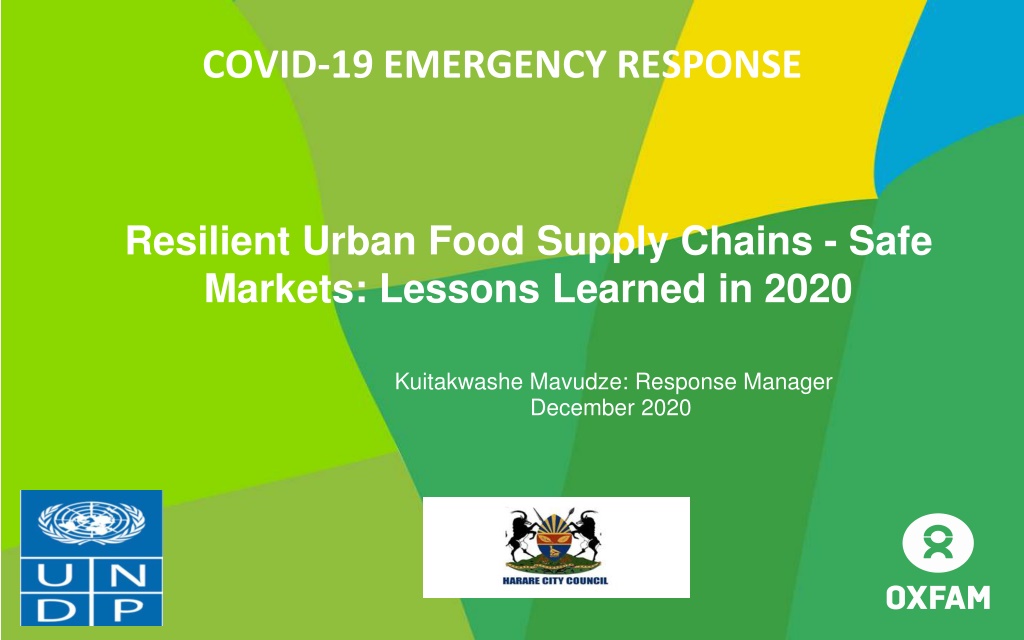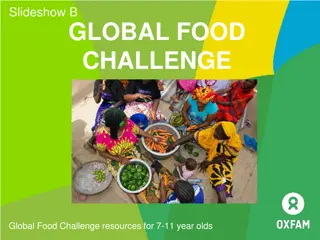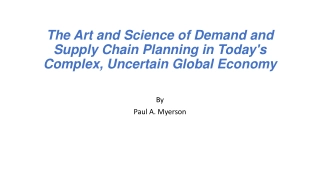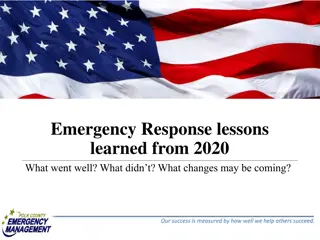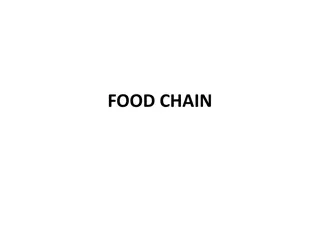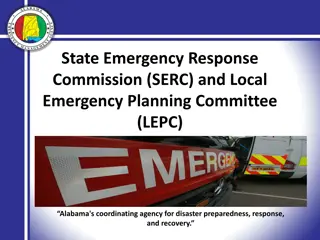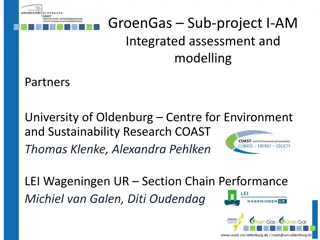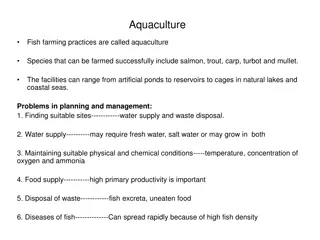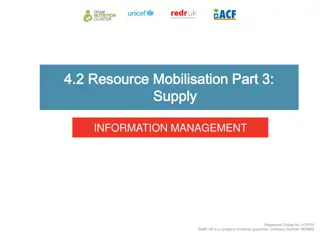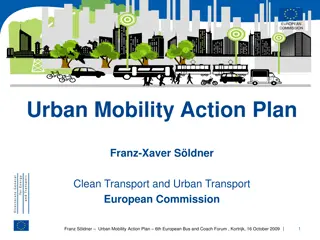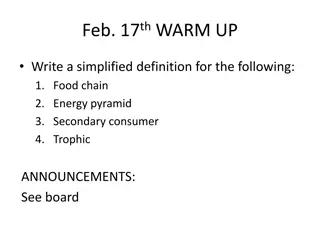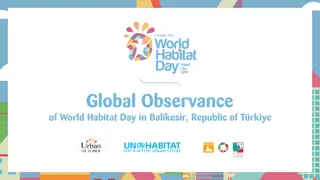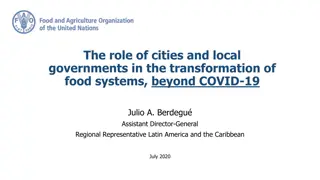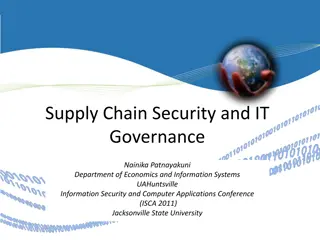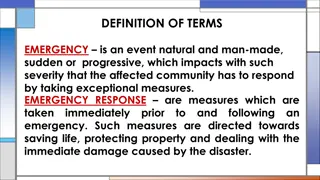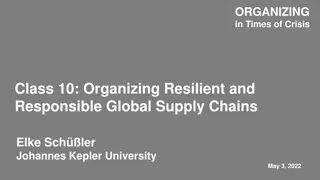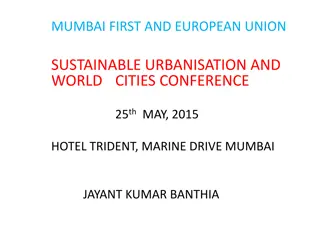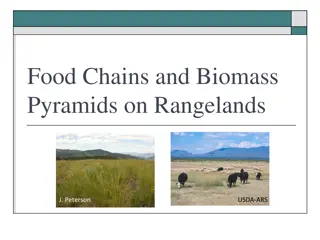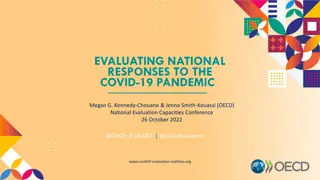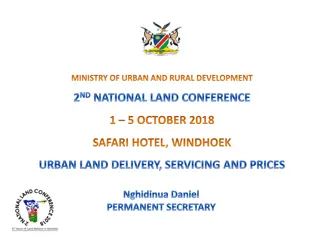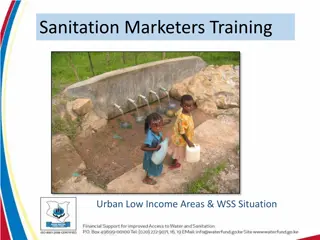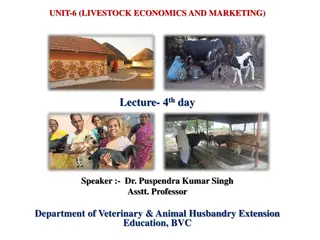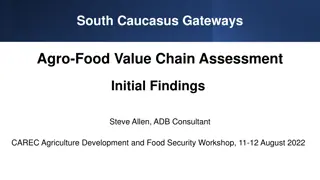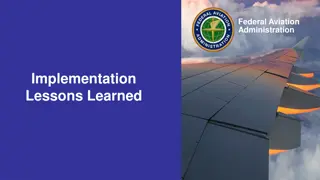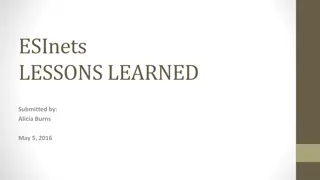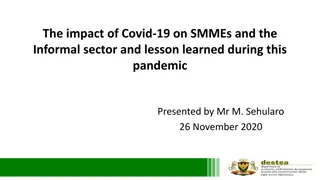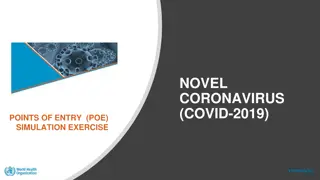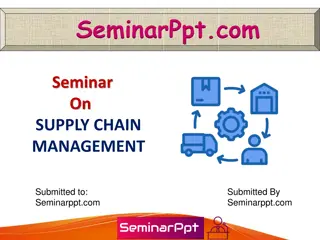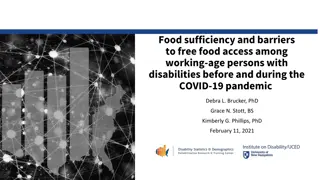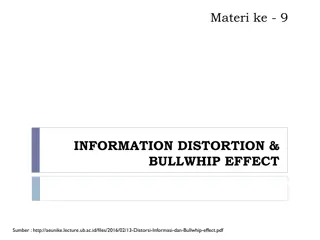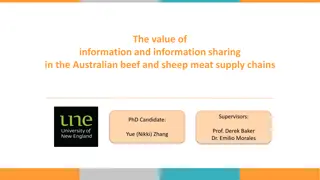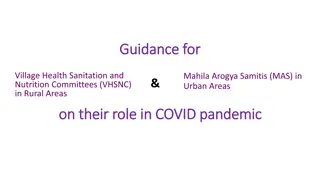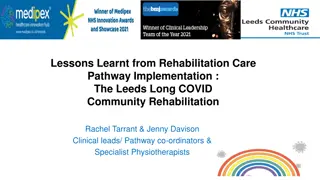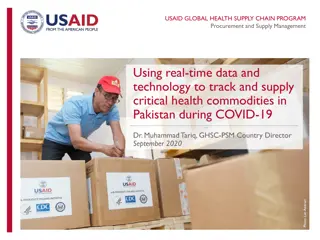Lessons Learned from COVID-19 Emergency Response in Urban Food Supply Chains
Achievements in creating COVID-resilient infrastructure in markets, forming market hygiene committees, and involving youths in food supply chain. Challenges include lack of effective service delivery and limited resources impacting project reach and activities.
Download Presentation

Please find below an Image/Link to download the presentation.
The content on the website is provided AS IS for your information and personal use only. It may not be sold, licensed, or shared on other websites without obtaining consent from the author. Download presentation by click this link. If you encounter any issues during the download, it is possible that the publisher has removed the file from their server.
E N D
Presentation Transcript
COVID-19 EMERGENCY RESPONSE Resilient Urban Food Supply Chains - Safe Markets: Lessons Learned in 2020 Kuitakwashe Mavudze: Response Manager December 2020
Key Success Factors (Achievements), what worked well? Renovations of 3 markets into COVID resilient infrastructure in 3 suburbs, with running water and foot controlled hand-washing stations, social distancing markings as well as a controlled pedestrian gate to allow for temperature checks. Formation and training of market hygiene committees composed of both men and women promoted compliance to COVID-19 prevention measures within the marketplaces. These include wearing of face masks, maintenance of social distances and washing of hands. Working with youths, both male and female helped in harnessing the young adults in the food supply chain and prevention of COVID in Mbare. These, if blended with experienced Health Promoters will make sure all age groups are reached with hygiene education Page 2
Key Success Factors (Achievements), what worked well (Contie.) UR Project transformed the communities mindset. Through Oxfam and UNDP, development of food supply chain has been depoliticised and people from different backgrounds were compelled to work together in unison. Through education and capacity building of committees and market players, the Mbare community now has sense of ownership of assets, hence more responsibility. Development of COVID-19 prevention SOPs for markets at greater Harare level improved reach since the SOPs ended up being adopted and implemented at all marketplaces in Harare IGAs and SACCOS activities managed to reduce gender-based violence due to increased income and through trainings that these groups got and cascaded in their communities, including their own families Page 3
Challenges and how they were dealt with Lack of effective service delivery (failure by COH to collect litter where market players would have deposited them has led to clogging of drainage system in the market and outside. In the rains, the litter is flooded back into the roads and market. This hampers the efforts to maintain a clean and environmentally safe market.) Economic challenges and limited interactions due to COVID-19 lockdown restrictions affected full support of the projects from the COH and contractors. Page 4
Challenges and how they were dealt with (Contie) Limited time and budgets meant not reaching everyone. UNDP and Oxfam had timeframes to get the activities done, and with the low capacity, COH could not be able to fulfil all its mandatory obligations. Shortage of resources meant they could not reach every corner of the suburbs with required support to improve the food supply chain. The issue of illegal vendors remained a critical one since it promotes spread of COVID-19 and water-borne diseases. City of Harare needs to manage this menace especially in Mbare Page 5
Gaps, Opportunities and Recommendations on next steps and proposed actions in 2021 The project could consider litter removal from the market area, since this derails efforts for cleanliness in the markets. (At the Project end term review, City of Harare had recommended refuse trucks specifically for the markets only) SACCOs/ISALS should have more education on conflict management skills especially on money handling and sharing issues On the issue of SACCOS, there is need to seriously consider the supporting with provision of proper working space Look also more at provision of ablution facilities at markets, supported with running water and handwashing facilities at the latrines Consider also sustainable income generation projects for youths Page 6
Reflections, Comments, Action Points for Way-forward The cash for work decontamination teams (if there are any) should emphasise the fact that fumigation only limits potential for contamination and people should still maintain other protective methods like masking, social distance and washing hands. Deployment of permanent refuse trucks for the markets, to control garbage is a critical need to maintain a clean environment at the markets. In fact, there should be a solid plan for waste management in the markets from City of Harare and financial commitment should be guaranteed Plans to decongest the Mbare markets by identifying other places like Mabvuku, Kuwadzana and other suburbs. Page 7
THANK YOU Page 8
